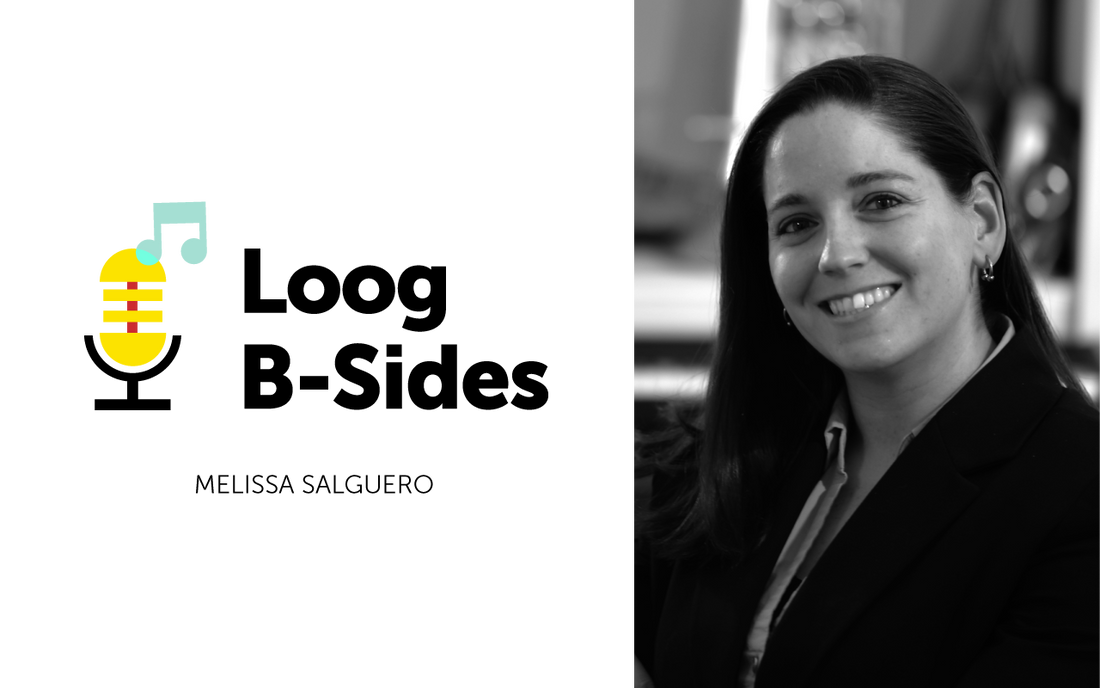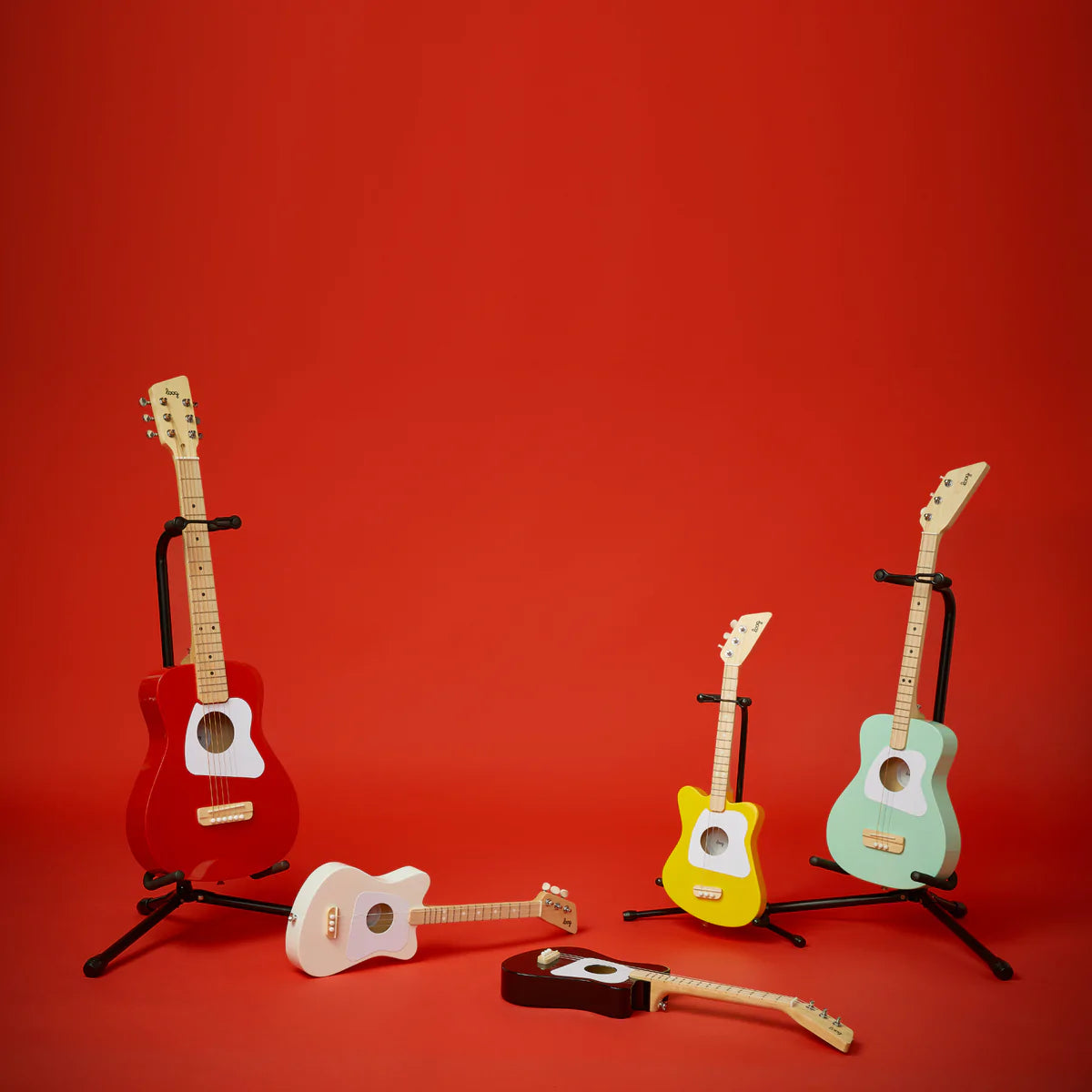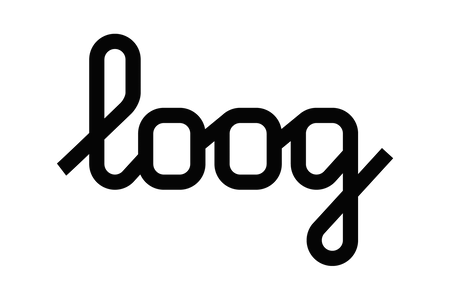
Loog B-Sides: How Music Can Help Kids in a Post-Pandemic World

This is the first episode of Loog B-Sides, a series of conversations that celebrates and shines a spotlight on some of our fave Loog Community members. You can also listen to excerpts from Loog B-Sides on Spotify.
This Back to School season has been riddled with uncertainty and doubt. If you’re a parent, like many of us here at Loog, sending your kids back to school after almost two years of virtual classes has been a double-edged conundrum. On the one hand, we’re excited about them getting up to speed with what they missed, both curriculum-wise and socially. But with new COVID variants springing up left and right, back to school this year has also been a huge leap of faith.
Melissa Salguero, one of the closest members of the Loog Community, knows this. The former Elementary School music teacher has just taken the leap into High School teaching this Fall, and is using music as a way to bridge the social and emotional gap this two-year sabbatical has caused. And if there’s something Melissa knows is music - and resiliency. A few years back, after all the instruments in her Elementary School in the Bronx were stolen, this New Yorker ended up taking the first step in a wild journey that saw her get on The Ellen Show, win the Grammy Award for Best Music Teacher of the year in 2018, and later drove her to become one of the Global Prize Finalists for teachers.

Earlier this year, we sat down with Melissa to talk about this and much more. Here’s just a dab of what she had to say.
Don’t feel like reading? You can also listen to an excerpt of Melissa’s interview on Spotify.
What’s your main concern about this new school year, following the pandemic?
One of my main concerns about this new upcoming school year is, and this is going to sound so bad, but to put less importance on the content that I'm teaching and be more understanding and patient with the social and emotional aspect of this. What has this pandemic done socially, emotionally to our students? I know that it's been almost two years since I have been in the building, teaching, and that's just being around that many people. Even going to the grocery store is like, “okay, let me mask up” and that’s really done some damage psychologically.
This isolation has done some damage to kids. They didn't get to go and have their summer camps, and if they did, it was with a mask on. I haven't met some of my students from last year. There's some kids that I never met in person. And I'll never see them in person because I have a new job now. That's important.
There's a big push to assess and see where we're at in regards to our standards and the content. And I feel the emotional aspect is more important, like: “How are you? You doing okay? Let's talk about how music can help you cope with this.” That sort of thing is very, very important to me. And because that's a skill that I want them to have once they grow up. If they're having a bad day, they can put on music that helps get them up or that they can relate to. That's an important skill. Cause I know I coped with a lot through music during the pandemic.
So there’s no real knowledge of how the pandemic has affected kids so far, right?
All I know is, from what I hear from my teacher friends who have already started school, “the kids are so behind”, and this and that. Yeah. That's expected. And when you think about these national standards, these educational standards, how and when they were designed, you know, it's not law. It's not like “You have to know this in third grade.” A lot of teachers see that as the benchmark. And if you don't hit it, then you fail.

But you know what, even myself, there are things that I learned years ago that I didn't really understand until I put them into use later in life. Like I still don't understand the Pythagorean Theorem, how somebody actually figured that out. But do I know it now? Yeah. Cause I can use it to figure stuff out. But my friends who have just been focusing on damage control, they're talking about how people don't know how to interact with one another.
For example, for Band, kids have to play with a mask on at some points. First of all, the fact that people created these masks that have holes in them so that you could play an instrument - that's resiliency, right? We are going to have music, no matter what we have to do. We have clarinets inside of these bags and it's kind of funny to look at, but it just goes to show you that resiliency, that pushing forward through the thick of it.
I think one of the things that the pandemic taught me was how to have better communication with parents. Before it would be like a phone call home, or an email home. But now it’s seeing teachers as a partner. It's not this kind of struggle anymore. If you think about the social aspect, let's say Critical Race Theory. A lot of parents are like “Oh, I don't want you to teach my kid that,” but we have to be a team together to move forward.
And this is my opinion, but schools need to educate our students not only on applicable things. Take Math and English, you know, how to actually write a presentable paper with proper punctuation and how to make sure you don't get the wrong change back and budgeting. But there’s also the other side of it, the culture side of it, the music, the Arts, right? A lot of schools when it comes down to budget, what do they do? Music, Arts, that can go. But with this pandemic, one of the things that's going to be really, really huge is the support for the Arts. Because if you want to know what's going to help get our kids back socially, emotionally, everything, it's those Arts and Sciences, those classes that are going to really speak to the other side of humanity.
Basically you have the logical side and we have the creative side, right and left brain. We need to cherish both of those equally. And it cannot just be about test scores or bridging the gap or just what content they are missing. It also needs to be about the human side. Like how do you speak to somebody's soul? How do you connect with somebody? How do you connect with people? How do you make friends? You can make friends in a music class, you can show you have things in common that way. It’s seeing the teachers as your partner. You guys are in it together. Asking the teachers, you know, what do you need? How can I help you? And when challenges arise, just remembering we're all human.
And then the second thing is that support for the Arts. That's going to be huge coming out of this pandemic and recovering because it's -and I may be biased since I'm a music teacher - but I think those are some of the most important things. Because we can't just all do Math and English all day. There's another half of us, you know, that needs to be tapped into as well.
How can music help cope with this?
Well, it's definitely one thing just knowing that you're not alone. First you can consume music that you relate to, to know that you're not alone, to know that somebody else has gone through what you've gone through. They've survived. They have felt that pain.
Sometimes the artists will put such beautiful words to describe what you're feeling. I mean, definitely that's comforting, just to know that other way to express yourself. I love to write music and I love to write songs, and it’s not to put it online or anything, but just to express myself. They end up being like little journals, you know. I can listen to a song that I wrote way back when, at a certain point of my life and be like, “Oh yeah, I went through a lot during that time.” And “Oh, during this time, this was when I was at my happiest.” So learning it, using it to express.

One of my goals as a teacher is to remove the barriers that prevent us from being able to write music, express ourselves, the social aspect of music: take those barriers out. So I want to find easier ways for them to write music, easier ways for them to play instruments. And I feel like that with Loog, that’s something that helps close that gap, to writing a song, because you can write a song with two fingers, just two different chords and that's something. So I'm always looking for things like that to make it more accessible.
You know, this is controversial, but I don't necessarily think that kids need to learn how to read music right away. Have them just make up a song, write lyrics, hum it out - how do we get the hum to paper? Well, there's an app for that. Pretty much. You can say that for everything. There's an app for that. So there are different things that I can do as a teacher to make music, writing, expression, all of them, more accessible to my students.
Beyond the pandemic, what role does music education actually have in kid development? Why is it so important?
I'm going to speak about my experience. So growing up, I struggled with school a lot. I didn't know why, but I struggled with reading, writing, spelling... I mean, I still struggle with spelling, but that's another story entirely. I wasn't diagnosed with dyslexia until later. And also this past year I was diagnosed with ADHD officially. That was something that really affected my education when I was little, and I was getting into trouble. Around fifth grade, I started to have music class and I struggled. I can't tell you, I can't even explain the feeling - I struggled so much. I struggled in school so much, until I picked up a trombone and I started playing and I was like, “Oh wow. I'm good at something.”

So that feeling of “I can achieve success in many different ways” was to me an eye-opening experience, because I had thought I was a failure this whole time. That experience for me quite literally saved my educational life. How do you put a price tag on that? How do you even explain that to somebody? Because it's not something you can touch. It's not something you can identify with statistics, you know, it's something that's entirely within a person. It's like, how do you teach someone discipline to practice? Did you ever have those Math drills where you had to do multiplication as fast as you can? Oh yeah. And I had such anxiety because I was not a quick thinker. And when I got to music, I had that sort of thing with sight-reading. Oh, it was my nemesis, but what I realized through the music was “Okay, if I just keep doing it, I get better at it.”
Who would have thunk it? Who would've thought that? So I started sight-reading, sight-reading more and I couldn't sight-read enough and, eventually over time, it became second nature. I felt like “Oh, it's all right. I got this.” That's how it affected me, and everybody has a different relationship with music. But one thing is true: music has touched everybody's life. Every single person's life, positive or negative, you know it. You can't live life without music impacting you in some sort of way. It's very, very powerful.
You can listen to an extract of Melissa’s interview in our Loog podcast page on Spotify.

